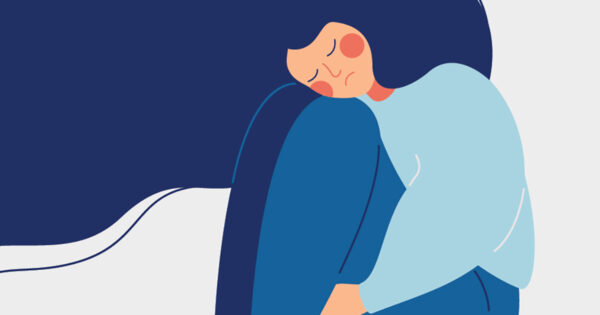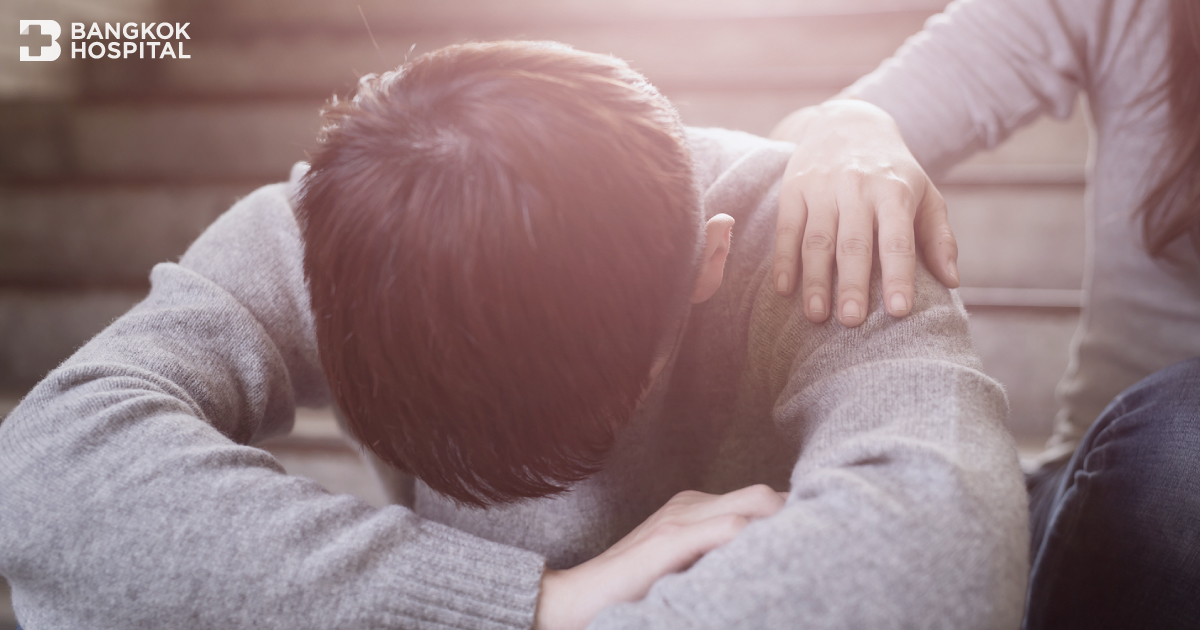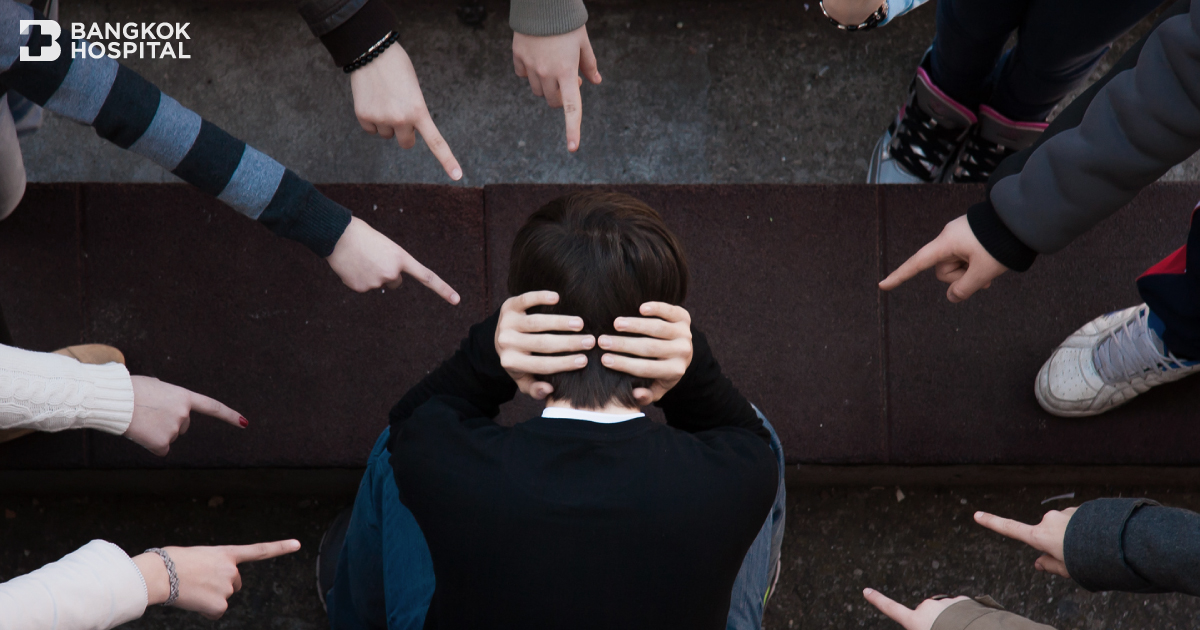Attitude Adjustment for Suicide Prevention
Global statistics which indicate there are more than 1 million successful suicide attempts per year. On average, there is a successful attempt every 40 seconds. The World Health Organization has revealed that suicide makes the top 10 list of causes of death in the world population. Furthermore, men are found to be 3 times more successful than women when attempting suicide.The causes for suicide can be attributed to a number of factors such as accumulation of stress, whether at school or at work, family and financial problems, as well as physical ailments that may have an adverse effect emotionally. All of which can lead to a feeling of no way out, which may eventually result in the decision to take one’s own life. The aforementioned things are considered external factors, however there may be internal hidden factors that can lead to suicide, such as undiagnosed and untreated depression.
Dr. Jitarin Jaidee, leading psychiatrist at the Bangkok Mental Health and Rehabilitation Center says that recent research into the field has shown that depression is related to an imbalance in the levels of certain chemicals found in the brain, especially the neurotransmitters serotonin and norepinephrine. As such, one treatment for depression includes medication to restore the chemical balance in the brain which can help to alleviate depression. However, since depression can be brought about by a number of other factors, the specifics of which may be revealed in discussions between the doctor and patient with the hope of coming up with an effective treatment plan. Overall, it is important to note that “The attitude of people in society is important and can have a pivotal role for individuals suffering from depression”. If a person diagnosed with depression the first step to take is an attitude adjustment. Depression is to be considered an illness, like other conditions such as diabetes and hypertension. It may happen to anyone and is not something to be embarrassed about or kept secret. It can be very helpful if this message can be communicated to the individual by their loved ones.
Dr. Jitarin goes on to indicate that depression will have clear characteristics and symptoms that persist in the long-term. For example, the individual may continually display emotions such as sadness and agitation which might last throughout the day, continuously for 2 weeks without any prospects of getting better. This can lead to cognitive malfunction, such as the inability to work,study, or make decisions as effectively as previously. Often, a person suffering from depression will ignore his or her surroundings, they simply do not feeling like doing anything at all, and are overcome with boredom. Other symptoms may include: changes in eating habits, food no longer tastes good, and the person loses interest in eating. However, some people may experience the opposite and we can see an increase intake of food (even when the person is not hungry), which can lead to significant weight gain in a short period of time. There may also be a change in sleeping patterns such as insomnia, shorter sleep cycles, waking up in the middle of the night. Other individuals may start to sleep throughout the day because they lack the motivation to get out of bed. There are also changes which may be experienced such as lethargy, weariness, and a desire for seclusion. Some may experience pain throughout the body, back, head, have a lack of concentration, impaired memory, and make a lot of mistakes. The person will constantly have negative thoughts about themselves and the outside world,they might become convinced that they are a bad person, undeserving of good things, and no one or nothing in the world can help to make them better.These thoughts can lead to an obsession with death or suicide. Before the onset of depression, usually none of these attitudes and thoughts existed.
“Negative thoughts, self-criticism, and repetitive thoughts about suicide are symptoms of depression”. This is important to know because “the majority of people with depression are unaware of their own condition or are not motivated to seek help”. As such it is up to family and loved ones to notice symptoms of depression and provide the necessary emotional support and where necessary seek appropriate medical treatment to help alleviate and cure the symptoms of depression.
Often, the person living with depression will face a battle on two fronts. On one hand, there is the feeling of sadness that stems from the depression itself, on the other hand they may face pressure from family members or loved ones. People often see “depression” as a condition of the weak and lazy”, and may choose to criticize or impose their way of thinking onto the patient. Others may think that depression is a trivial matter and as such they do not try to help. The depressed person may be told to “relax, do not think too much, that it is such a small problem” whilst pressuring them by asking “why are you still not better?”. Friends and family members might provide inappropriate advice because they don’t understand the nature of depression and this can have an adverse effect on a depressed person.
They may also provide advice in haste that is inappropriate or not serious at the time. The aforementioned can all have an adverse effect on a person living with depression.If you or someone you know has suicidal thoughts or experiences sudden behavioral change it is recommended to seek consultation specialized medical experts such as psychiatrist or psychologist.









